
Discover the Charm of Kalyani Nagar
Situated in the vibrant city of Pune, Kalyani Nagar is a blend of modernity and tradition. Known for its lush green surroundings and tree-lined avenues, this neighborhood offers a serene escape from the bustling city life. Kalyani Nagar is home to a mix of residential areas, commercial spaces, and recreational hubs, making it a well-rounded destination for tourists. One of the highlights of Kalyani Nagar is the beautiful Aga Khan Palace, a historical monument that offers a glimpse into India's rich heritage. The palace is surrounded by expansive gardens that provide a tranquil setting for leisurely walks and picnics. For those interested in shopping and dining, the neighborhood boasts several upscale malls and a variety of restaurants serving international and local cuisine. Nature enthusiasts will appreciate the proximity to the lush greenery of the nearby Koregaon Park and the scenic Mula-Mutha River. The area also offers several parks and open spaces, perfect for morning jogs or evening strolls. With its convenient location, Kalyani Nagar provides easy access to Pune's major attractions, making it an ideal base for exploring the city.
Local tips in Kalyani Nagar
- Visit Aga Khan Palace early in the morning to avoid crowds and enjoy the peaceful gardens.
- Try local Maharashtrian cuisine at one of the neighborhood's authentic restaurants for a true taste of Pune.
- Take a leisurely walk along the Mula-Mutha River during sunset for picturesque views.
- Use auto-rickshaws or app-based cabs for convenient and affordable local transportation.
- Check out the local markets for unique souvenirs and handmade crafts.
Discover the Charm of Kalyani Nagar
Situated in the vibrant city of Pune, Kalyani Nagar is a blend of modernity and tradition. Known for its lush green surroundings and tree-lined avenues, this neighborhood offers a serene escape from the bustling city life. Kalyani Nagar is home to a mix of residential areas, commercial spaces, and recreational hubs, making it a well-rounded destination for tourists. One of the highlights of Kalyani Nagar is the beautiful Aga Khan Palace, a historical monument that offers a glimpse into India's rich heritage. The palace is surrounded by expansive gardens that provide a tranquil setting for leisurely walks and picnics. For those interested in shopping and dining, the neighborhood boasts several upscale malls and a variety of restaurants serving international and local cuisine. Nature enthusiasts will appreciate the proximity to the lush greenery of the nearby Koregaon Park and the scenic Mula-Mutha River. The area also offers several parks and open spaces, perfect for morning jogs or evening strolls. With its convenient location, Kalyani Nagar provides easy access to Pune's major attractions, making it an ideal base for exploring the city.
Iconic landmarks you can’t miss
Elephant and Co. Kalyani Nagar
Experience the vibrant nightlife of Pune at Elephant and Co. Kalyani Nagar, where great drinks, delicious food, and live entertainment come together.
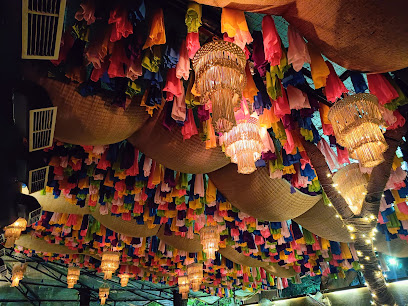
Vascon Mariplex Mall
Experience the ultimate shopping and entertainment destination in Pune at Vascon Mariplex Mall, where every visit is a new adventure.
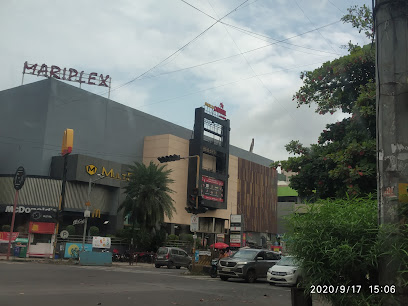
FML- Food Music Love (Kalyani Nagar)
Discover FML - Food Music Love in Kalyani Nagar, Pune, where exceptional cuisine, live music, and a stunning rooftop view create unforgettable experiences.
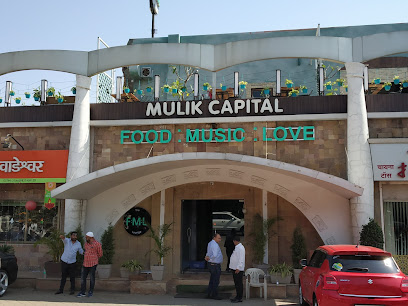
Independence Brewing Company - Kalyani Nagar
Discover the craft beer paradise at Independence Brewing Company in Kalyani Nagar, Pune, where exceptional brews meet a lively atmosphere.
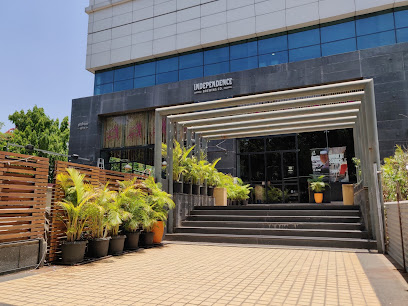
Landmark Garden
Explore the serene beauty of Landmark Garden, a lush urban retreat in Kalyani Nagar, Pune, perfect for relaxation and nature lovers.
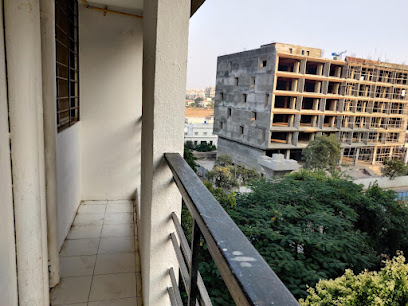
Lunkad Sky Lounge
Experience breathtaking views and delightful cuisine at Lunkad Sky Lounge, Pune's premier rooftop dining destination for unforgettable gatherings.
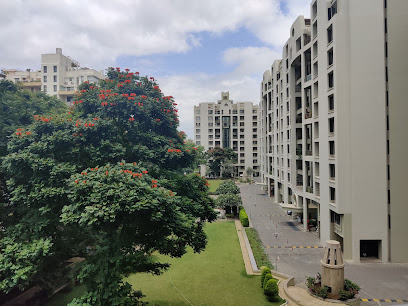
Aga Khan Palace
Discover the historical charm of the Aga Khan Palace in Pune, a symbol of India's freedom struggle and a stunning architectural marvel.
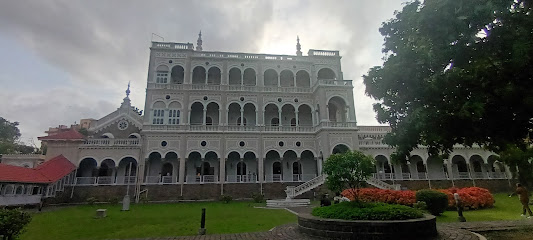
kalyani nagar pune
Discover Kalyani Nagar, Pune: A vibrant neighborhood teeming with lush parks, upscale dining, and a rich cultural scene, perfect for every traveler.
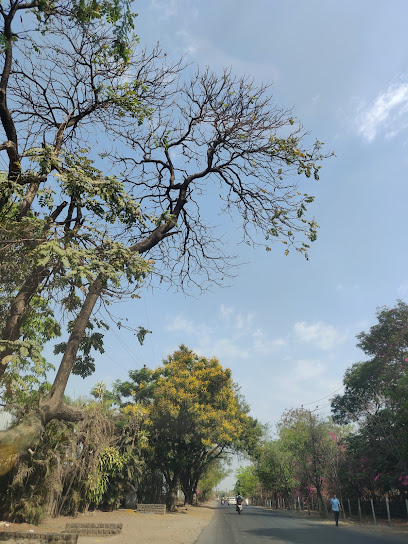
Kalyani nagar
Explore Kalyani Nagar, Pune's vibrant gift shop hub, where unique treasures and local artistry await every tourist.
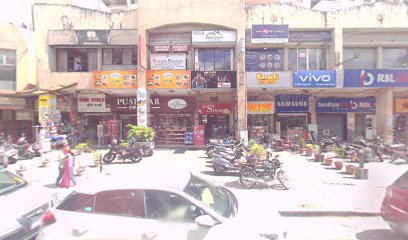
Kalyani Nagar
Explore the vibrant neighborhood of Kalyani Nagar in Pune, where modern living meets lush greenery and diverse dining options.
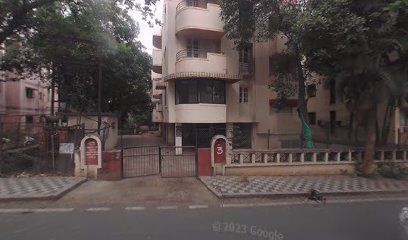
Unmissable attractions to see
Raja Dinkar Kelkar Museum
Explore India's artistic legacy at the Raja Dinkar Kelkar Museum in Pune, a treasure trove of cultural heritage and exquisite artifacts.
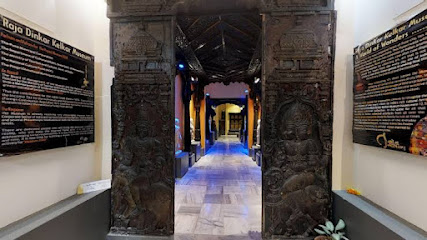
Osho Garden
Discover tranquility at Osho Garden, a serene escape in Pune, featuring lush greenery, artistic sculptures, and a spiritual ambiance.
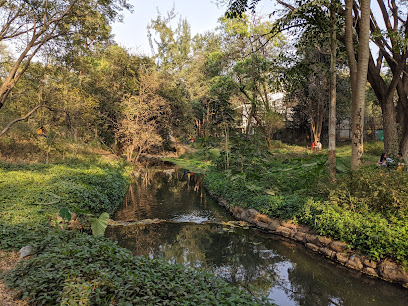
Osho Teerth Park
Explore the serene beauty of Osho Teerth Park in Pune, a tranquil oasis combining nature, art, and spirituality.
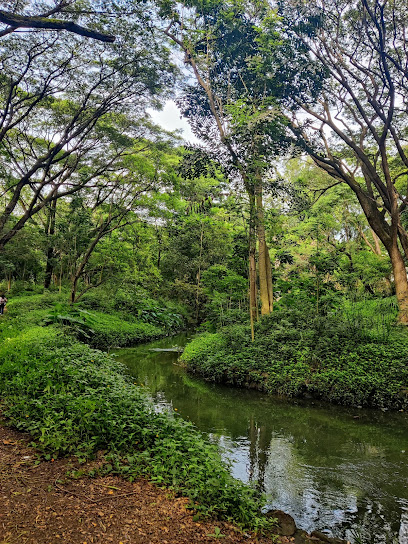
Raje Chhatrapati Shivaji Maharaj Udyan
Experience nature's beauty at Raje Chhatrapati Shivaji Maharaj Udyan, Pune's serene park with lush gardens and immersive attractions for all ages.
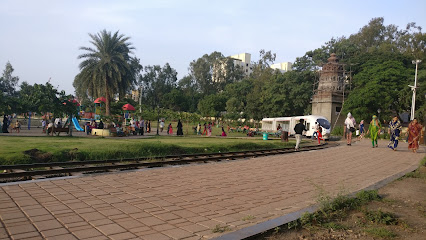
Darshan Museum
Explore the artistic treasures of Darshan Museum in Pune, where history and creativity unite to create an unforgettable experience.
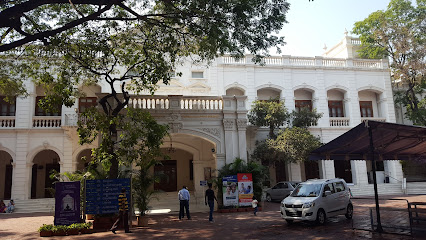
Gandhi National Memorial Society
Explore the legacy of Mahatma Gandhi at the Gandhi National Memorial Society in Pune, a serene tribute set within the historic Agakhan Palace.

Kasturba Gandhi Garden
Discover the serene beauty of Kasturba Gandhi Garden, a tranquil oasis in Pune perfect for relaxation, family outings, and nature exploration.
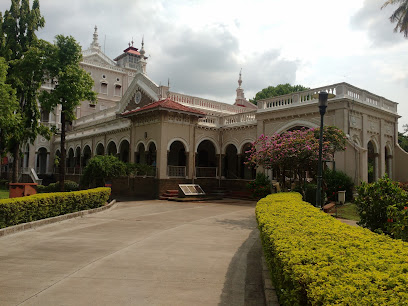
Entry of aga khan palace
Experience the serene beauty and rich history of Aga Khan Palace, a tranquil park in Pune offering a unique blend of culture and nature.
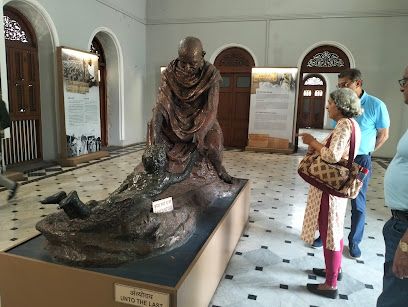
Essential places to dine
Barbeque Nation - Kalyani Nagar - Pune
Savor the best barbecue experience in Pune at Barbeque Nation - Kalyani Nagar with exquisite Indian flavors and delightful buffet options.
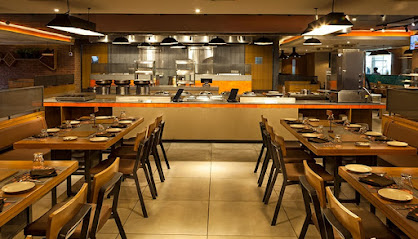
Kalyani Veg Restaurant
Experience authentic South Indian cuisine alongside delectable Chinese and Punjabi dishes at Kalyani Veg Restaurant in Pune.
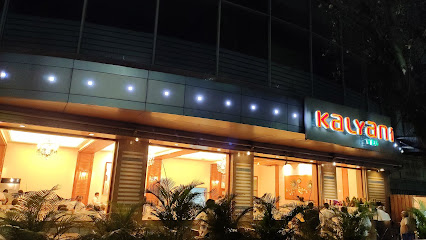
The Flour Works
Experience modern European cuisine at The Flour Works in Kalyani Nagar, Pune - where taste meets elegance.
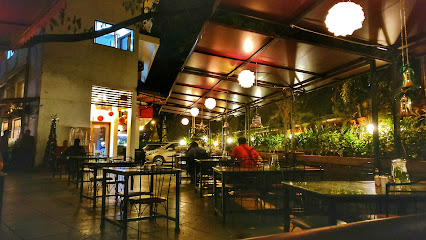
Kerala Cafe
Experience authentic Keralan cuisine at Kerala Cafe in Pune – where every dish tells a story of tradition and flavor.
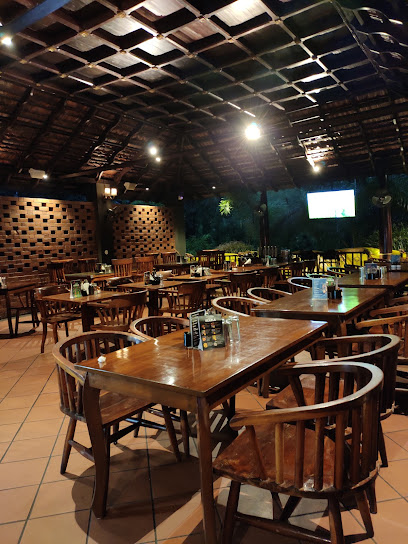
Marrakesh
Discover authentic Middle Eastern cuisine at Marrakesh in Pune - savor delicious kebabs and vibrant flavors in a cozy setting.
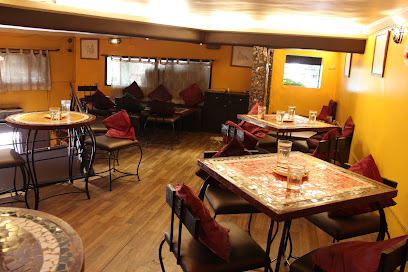
Pergola De Pines
Discover culinary excellence at Pergola De Pines in Pune – where exquisite food meets vibrant nightlife.
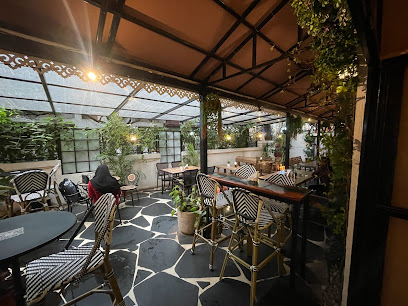
Yeti - The Himalayan Kitchen, Kalyani Nagar
Experience authentic Nepalese cuisine at Yeti - The Himalayan Kitchen in Pune's vibrant Kalyani Nagar area.
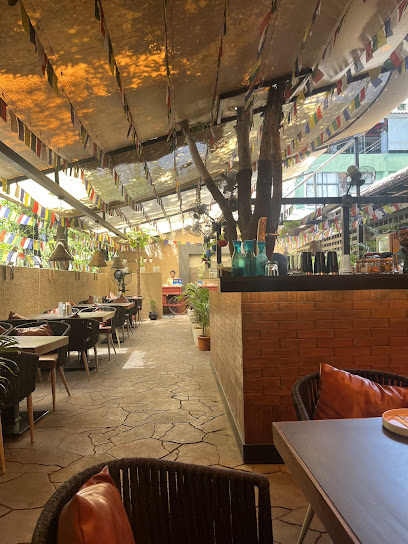
Soy Como Soy
Experience authentic Asian flavors at Soy Como Soy in Pune's Kalyani Nagar—where culinary creativity meets warm hospitality.
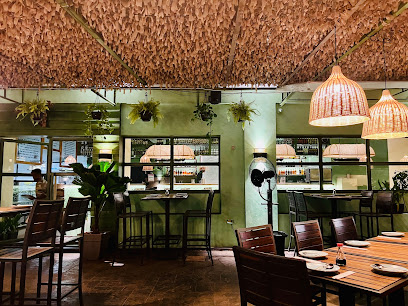
Boogie Tales - The Indian Barroom
Discover Boogie Tales - The Indian Barroom: A vibrant fusion of modern Indian cuisine and lively nightlife in Pune's Kalyani Nagar.
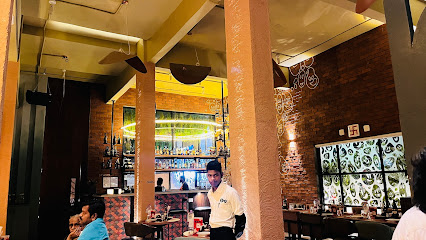
Kasba
Experience Pune's culinary charm at Kasba - where every dish tells a story in an inviting setting.
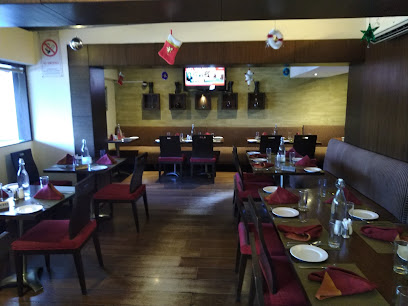
Markets, malls and hidden boutiques
Vascon Mariplex Mall
Discover Vascon Mariplex Mall in Pune, a vibrant shopping and entertainment hub featuring diverse retail, dining, and family-friendly attractions.
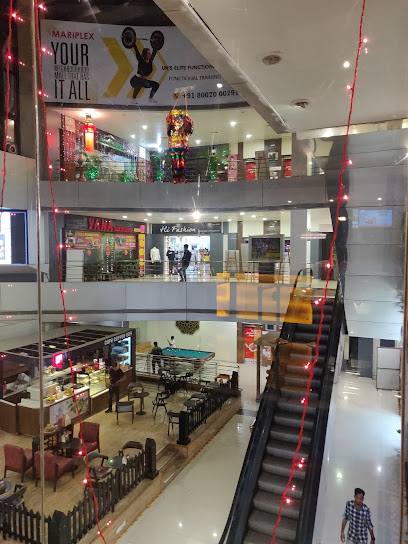
Adaa Fashions
Explore the exclusive world of Adaa Fashions, where bespoke tailoring meets designer elegance in Pune's vibrant Kalyani Nagar.
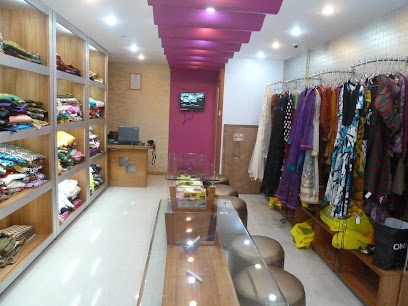
Cool Bean Bags
Discover stylish bean bags and custom furniture at Cool Bean Bags in Pune - where comfort meets creativity in every piece.
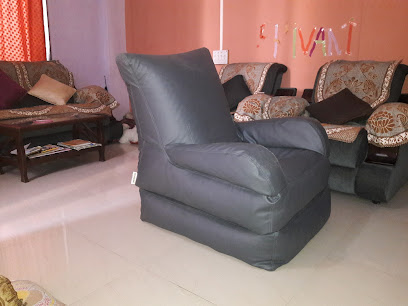
Home world
Home World: Your go-to gift shop in Kalyani Nagar, Pune for unique souvenirs and local crafts that capture the spirit of India.
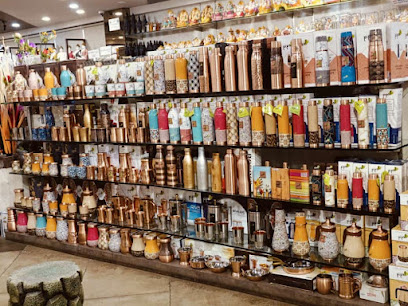
Haveli The Fashion Hub
Explore the latest fashion trends at Haveli The Fashion Hub in Pune—where style meets tradition in a vibrant shopping experience.
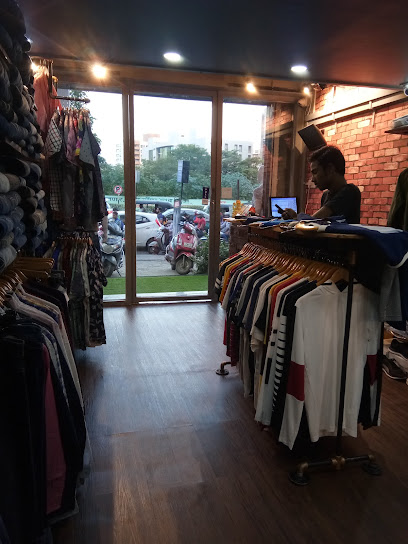
Amayra Couture
Discover unique designer clothing at Amayra Couture in Pune's Kalyani Nagar, where fashion meets artistry for an unforgettable shopping experience.
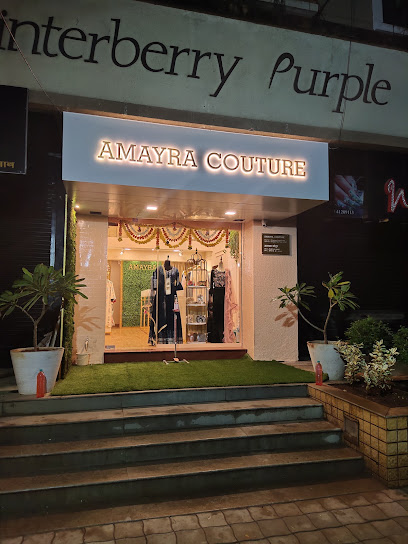
Best Designer Boutique - Cuts n Cloths
Discover Pune's fashion gem at Cuts n Cloths, where unique designer pieces and expert tailoring meet in a welcoming boutique atmosphere.
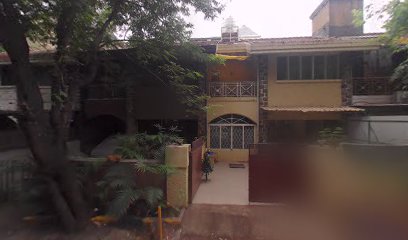
Aesthetic Couture
Explore Aesthetic Couture in Pune for exquisite fashion, unique jewelry, and custom leather goods that redefine elegance.
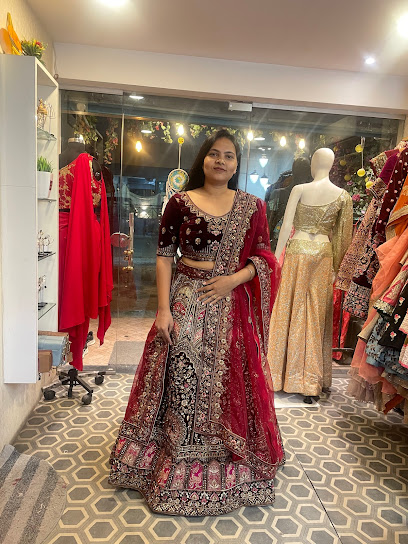
Archies
Discover unique gifts and souvenirs at Archies in Pune's Kalyani Nagar, where thoughtful shopping meets delightful ambiance.
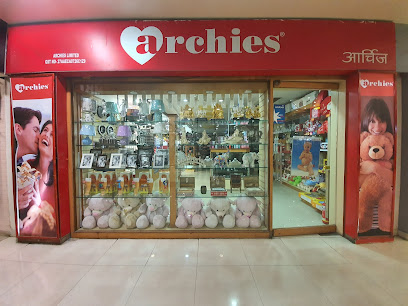
Kalyani nagar
Explore Kalyani Nagar, Pune's premier destination for unique gifts and a vibrant shopping experience in a charming atmosphere.
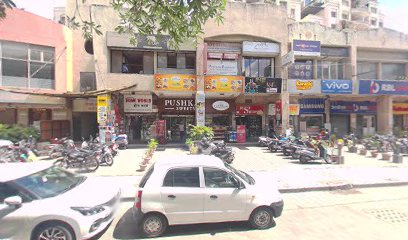
Jinis
Discover unique gifts and stylish clothing at Jinis, a charming boutique in Kalyani Nagar, Pune, perfect for memorable shopping experiences.
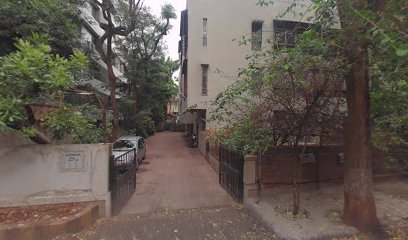
Aoutograhf, the Studio: HandDesigned Clothing, Accessories and more
Discover Aoutograhf: Pune's premier destination for custom-designed clothing and accessories that blend tradition with contemporary fashion.

Essential bars & hidden hideouts
Elephant and Co. Kalyani Nagar
Discover the lively spirit of Pune at Elephant and Co. Kalyani Nagar, an iconic pub offering unique cocktails and a vibrant atmosphere.
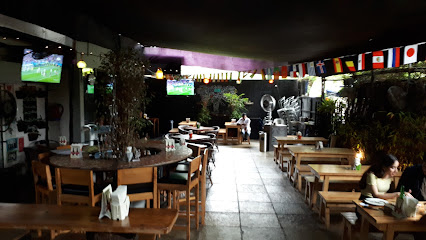
Toit Pune
Experience the best of craft beer and innovative cuisine at Toit Pune, a vibrant brewpub in the heart of Kalyani Nagar.
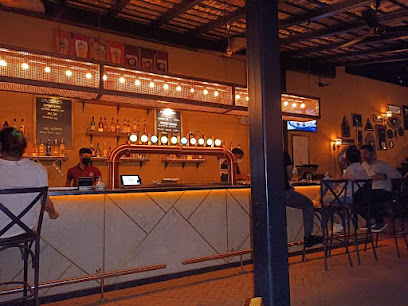
Independence Brewing Company - Kalyani Nagar
Discover Pune's craft beer scene at Independence Brewing Company, a vibrant brewpub offering unique brews and delicious food in Kalyani Nagar.
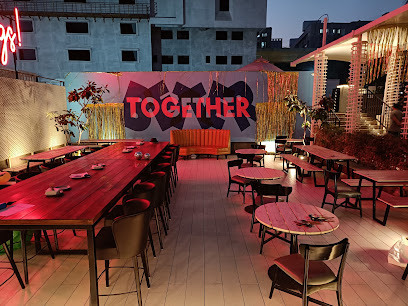
Unicorn House
Discover the vibrant nightlife of Pune at Unicorn House, a bar and dance club offering delicious food, eclectic drinks, and a lively atmosphere.
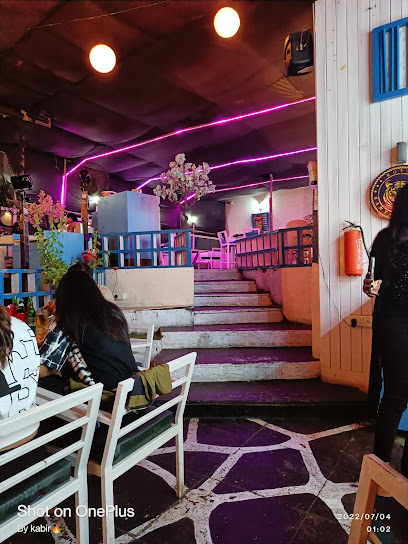
Affairs | Kalyani Nagar
Discover Pune's vibrant nightlife at Affairs, a lively pub in Kalyani Nagar offering an extensive drink menu and delectable cuisine.
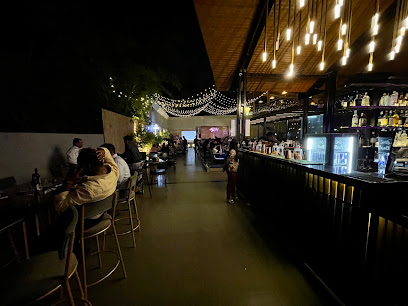
Cobbler & Crew
Experience Pune's vibrant cocktail scene at Cobbler & Crew, where creativity meets community in a stylish setting.
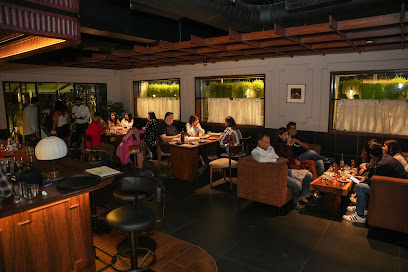
The Terrace Bar
Experience the vibrant atmosphere and exquisite multi-cuisine offerings at The Terrace Bar in Pune's Hyatt Hotel.
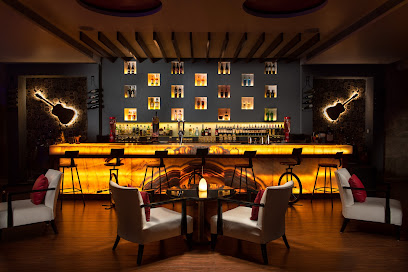
Juju
Discover Juju in Pune, a cocktail bar where creativity meets relaxation, offering a unique blend of classic and innovative drinks in a chic atmosphere.
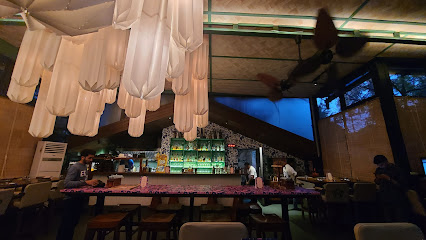
Fat Pigeon - Bar Hop
Discover the vibrant nightlife of Pune at Fat Pigeon - Bar Hop, where great drinks meet a lively atmosphere.
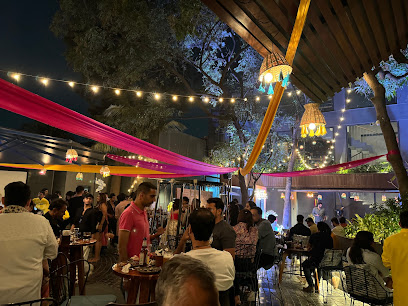
Mix Restaurant and Bar
Experience the vibrant flavors and refreshing cocktails at Mix Restaurant and Bar, a top dining destination in Kalyani Nagar, Pune.
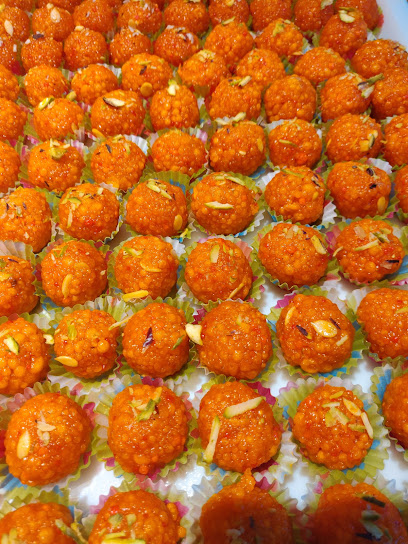
Local Phrases
-
- Helloनमस्कार
[namaskar] - Goodbyeअलविदा
[alvida] - Yesहाँ
[haan] - Noनहीं
[nahin] - Please/You're welcomeकृपया
[krupaya] - Thank youधन्यवाद
[dhanyavad] - Excuse me/Sorryक्षमा कीजिए
[kshama keejiye] - How are you?आप कैसे हैं?
[aap kaise hain?] - Fine. And you?ठीक हूँ। आप?
[thik hoon. aap?] - Do you speak English?क्या आप अंग्रेज़ी बोलते हैं?
[kya aap angrezi bolte hain?] - I don't understandमुझे समझ नहीं आया
[mujhe samajh nahin aaya]
- Helloनमस्कार
-
- I'd like to see the menu, pleaseकृपया मेनू देखना चाहूँ
[krupaya menu dekhna chahoon] - I don't eat meatमैं मांस नहीं खाता
[main maans nahin khata] - Cheers!चियर्स!
[cheers!] - I would like to pay, pleaseकृपया मैं भुगतान करना चाहता हूँ
[krupaya main bhugtan karna chahta hoon]
- I'd like to see the menu, pleaseकृपया मेनू देखना चाहूँ
-
- Help!बचाओ!
[bachao!] - Go away!चले जाओ!
[chale jao!] - Call the Police!पुलिस को बुलाओ!
[police ko bulaao!] - Call a doctor!डॉक्टर को बुलाओ!
[doctor ko bulaao!] - I'm lostमैं खो गया हूँ
[main kho gaya hoon] - I'm illमुझे बीमारी है
[mujhe bimari hai]
- Help!बचाओ!
-
- I'd like to buy...मुझे खरीदना है...
[mujhe khareedna hai...] - I'm just lookingमैं बस देख रहा हूँ
[main bas dekh raha hoon] - How much is it?यह कितने का है?
[yah kitne ka hai?] - That's too expensiveयह बहुत महंगा है
[yah bahut mahnga hai] - Can you lower the price?क्या आप कीमत कम कर सकते हैं?
[kya aap keemat kam kar sakte hain?]
- I'd like to buy...मुझे खरीदना है...
-
- What time is it?अब कितने बजे हैं?
[ab kitne baje hain?] - It's one o'clockएक बजे हैं
[ek baje hain] - Half past (10)दस बजकर पाँच मिनट हुए
[das bajkar paanch minute hue] - Morningसुबह
[subah] - Afternoonदोपहर
[dopahar] - Eveningशाम
[shaam] - Yesterdayकल
[kal] - Todayआज
[aaj] - Tomorrowकल
[kal] - 1एक
[ek] - 2दो
[do] - 3तीन
[teen] - 4चार
[char] - 5पाँच
[paanch] - 6छह
[chhah] - 7सात
[saat] - 8आठ
[aath] - 9नौ
[nau] - 10दस
[das]
- What time is it?अब कितने बजे हैं?
-
- Where's a/the...?...कहाँ है?
[...kahan hai?] - What's the address?पता क्या है?
[pata kya hai?] - Can you show me (on the map)?क्या आप मुझे दिखा सकते हैं?
[kya aap mujhe dikha sakte hain?] - When's the next (bus)?अगली (बस) कब है?
[agli (bus) kab hai?] - A ticket (to ....)एक टिकट (के लिए ....)
[ek ticket (ke liye ....)]
- Where's a/the...?...कहाँ है?
History of Kalyani Nagar
-
Kalyani Nagar, originally a part of the Pune Metropolitan Region, was developed in the 1960s as a residential area for government employees and the affluent class. Its development was part of a broader urban planning initiative to accommodate the growing population of Pune, which was evolving from a historical center into a bustling urban hub.
-
In the late 20th century, Kalyani Nagar witnessed rapid urbanization and transformation. The area was once characterized by its lush greenery and open spaces, which gradually gave way to modern residential complexes, commercial establishments, and infrastructure development. This change reflected the broader economic reforms in India during the 1990s, leading to a surge in real estate investments in Pune.
-
Today, Kalyani Nagar stands as a vibrant cultural melting pot, attracting residents from various parts of India and the world. The neighborhood is home to numerous cafes, restaurants, and cultural venues that reflect the cosmopolitan nature of Pune. Events and festivals celebrated here showcase a blend of traditional Maharashtrian culture and contemporary influences.
-
In response to urban challenges, Kalyani Nagar has become a pioneer in environmental initiatives. The community has embraced green practices, including waste segregation, rainwater harvesting, and the establishment of parks. This reflects a growing awareness of sustainable living among residents, contributing to the preservation of the area's natural beauty amidst urban growth.
-
As of the early 21st century, Kalyani Nagar is recognized as one of the most sought-after residential neighborhoods in Pune, known for its high quality of life, excellent amenities, and proximity to IT hubs. The area continues to evolve, balancing modern development with its historical roots and cultural heritage, making it a significant part of Pune's urban tapestry.
Kalyani Nagar Essentials
-
Kalyani Nagar is well-connected to other neighborhoods in Pune. The nearest major railway station is Pune Junction, located approximately 7 km away. From there, you can take a taxi or an auto-rickshaw to reach Kalyani Nagar. If you're coming from the Pune International Airport, which is about 4 km away, taxis and ride-sharing services are readily available. Local buses also connect Kalyani Nagar to various parts of the city.
-
Kalyani Nagar is a compact neighborhood, making it easy to explore on foot or by bicycle. There are several bicycle rental shops if you prefer a more active mode of transportation. Auto-rickshaws are a common way to get around, and ride-sharing apps like Uber and Ola operate in the area. Public buses offer routes to nearby neighborhoods, although they may not be as convenient for tourists.
-
Kalyani Nagar is generally a safe neighborhood for tourists, but standard precautions should be taken. It's advisable to avoid walking alone at night in less populated areas. While there are no specific high-crime zones targeting tourists, areas near lonely streets or poorly lit parks may be less safe. Stay vigilant about your belongings in crowded places.
-
In case of an emergency, dial 112 for immediate assistance. Local hospitals and clinics are available in Kalyani Nagar. It is highly advisable to have travel insurance that covers medical emergencies. For minor health issues, pharmacies are conveniently located throughout the neighborhood. Always keep a list of emergency contacts handy.
-
Fashion: Do dress modestly, especially when visiting temples or religious sites. Avoid overly revealing clothing. Religion: Do respect local customs; remove your shoes when entering places of worship. Public Transport: Do give up your seat for the elderly and pregnant women. Don’t eat or drink on public transport. Greetings: Do greet people with a smile and a nod. A handshake is acceptable, but be cautious with physical contact. Eating & Drinking: Do try local dishes and accept food offerings. Don’t waste food or refuse hospitality, as it may be seen as rude.
-
To experience Kalyani Nagar like a local, visit the local markets for fresh produce and traditional snacks. Engage with local shopkeepers and residents to learn more about the culture. Explore the many parks in the area, such as the famous Kalyani Nagar Park, for a leisurely stroll. Don't miss trying the local cuisine at small eateries; they often serve the best authentic dishes. Participate in local festivals if your visit coincides with them for a richer cultural experience.
Nearby Cities to Kalyani Nagar
-
Things To Do in Mumbai
-
Things To Do in Nashik
-
Things To Do in Aurangabad
-
Things To Do in Panaji
-
Things To Do in Goa
-
Things To Do in Vadodara
-
Things To Do in Ahmedabad
-
Things To Do in Rajkot
-
Things To Do in Nagpur
-
Things To Do in Bhopal
-
Things To Do in Udaipur
-
Things To Do in Bengaluru
-
Things To Do in Mysore
-
Things To Do in Jabalpur
-
Things To Do in Kozhikode











